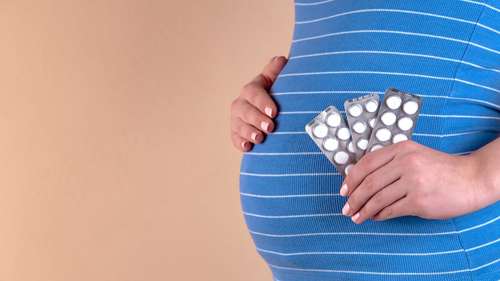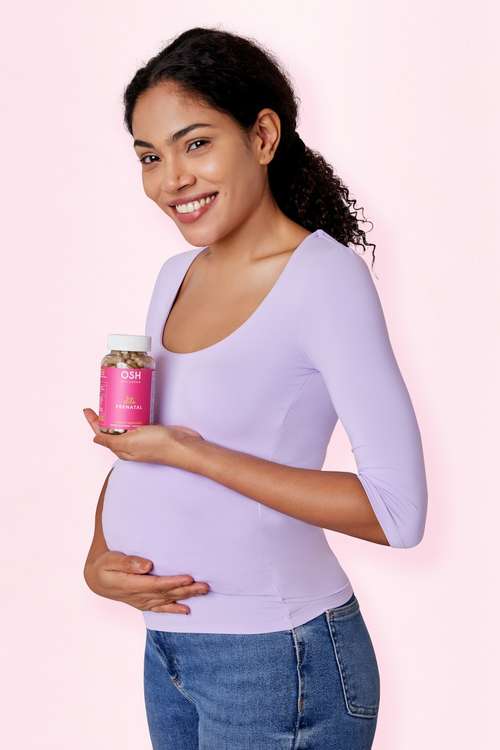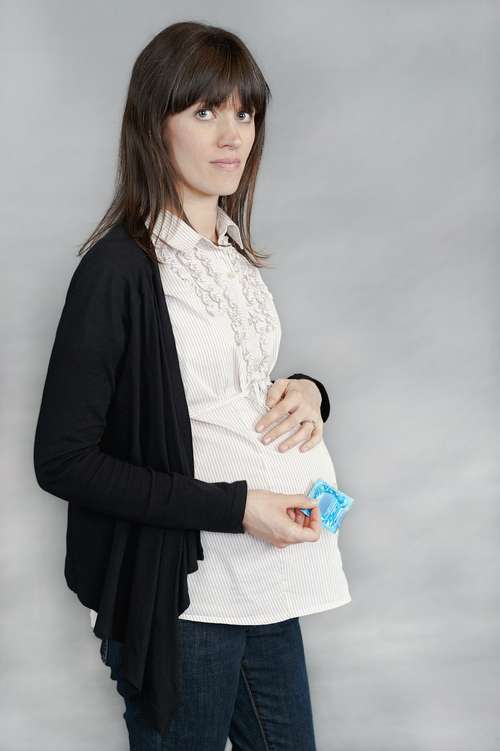Let’s talk about postpartum recovery to help our beloved new moms!
Bringing a new life into the world is a beautiful experience, but it’s also a big adjustment. Whether it’s your first time or you’re already a mom, the postpartum period can feel overwhelming.
Your body is healing, your emotions are in overdrive, and you’re stepping into a new phase of life. Having the right knowledge and essentials can make all the difference. But you can trust we will be by your side all the way. So, in this guide, we'll walk you through everything you need to know to support your recovery and make this transition a little smoother.
What is the Postpartum Period?
The postpartum period, often called the fourth trimester, begins the moment you give birth and lasts for about 12 weeks. It’s a time of incredible transformation, not just for your baby, but for you and your family as well.
While your newborn is getting used to life outside the womb, you’re adjusting to motherhood and managing the emotional and physical shifts that come with it.
It’s completely normal to feel exhausted, unsure, or overwhelmed about how to take care of your bundle of joy during this time. You might experience the “baby blues,” which usually pass after a short time. However, if you’re feeling more deeply affected or notice signs of postpartum depression, don’t hesitate to seek help.
Now, let’s talk about some essentials you will need to make your postpartum journey a smooth one.
16 Postpartum Essentials for New Moms
As a new mom, taking care of yourself during postpartum recovery is just as important as caring for your baby.
Having the right postpartum essentials on hand can help ease your recovery and support your maternal health. Here are some must-haves to consider:
Pain Relief Medicine
Pain is a common part of postpartum recovery, whether you’ve had a vaginal birth or a c-section. For those who had a c-section, your doctor may prescribe pain relief medication.
If you’re not given a prescription, over-the-counter options like ibuprofen or acetaminophen are generally safe to use while breastfeeding.
However, always check with your healthcare provider before starting any medication to make sure it’s right for you and your baby.
Ice Packs and Heating Pads
Swelling and discomfort can be part of the recovery process, and ice packs can help reduce these symptoms, especially around the vaginal area or c-section incision.
Heating pads can soothe cramping and sore muscles in the abdominal area.
Both can also be useful for breastfeeding, with heating pads increasing milk flow and ice packs reducing swelling after nursing.
Peri Rinse Bottle
For new moms who delivered vaginally, a peri rinse bottle is a gentle and effective way to clean your sensitive areas after using the toilet.
Instead of wiping with toilet paper, which can irritate the sore area, a peri rinse bottle allows you to rinse clean, promoting better hygiene without causing discomfort.
Supportive Underwear
Regardless of how you gave birth, supportive underwear is a must for postpartum recovery. These specially designed undergarments offer gentle compression and help ease discomfort around the abdominal area.
They also provide much-needed support for weakened pelvic floor muscles, which often need time to recover after pregnancy and childbirth.
Menstrual Pads
Postpartum bleeding, known as lochia, can last for several weeks, and menstrual pads are a necessity during this time.
Designed to handle different levels of bleeding, they provide protection and comfort, especially for the sensitive perineal area.
Remember, it’s important that you avoid tampons or menstrual cups during this period, as they can increase the risk of infection.
Sitz Bath
A sitz bath is a small basin that fits over the toilet and allows you to soak the perineum area in warm water.
This simple treatment helps relieve discomfort and promotes healing after childbirth, especially if you’ve had stitches or are dealing with hemorrhoids.
You can also use a bathtub for this purpose if you don’t have a sitz bath kit.
Perineal Spray
Hemorrhoids or stitches in the perineal area can be uncomfortable after giving birth. If you’re short on time or can’t easily manage a sitz bath, perineal sprays offer quick relief.
They help numb the area and reduce pain, making it easier to manage daily activities during recovery.
Stool Softeners and Suppositories
Constipation is a common issue after childbirth. It is usually caused by factors like medication, incisions, or even low fluid intake.
Stool softeners and suppositories can make bowel movements easier, preventing further discomfort or straining.
Both are available at your local pharmacy or drug store, but it’s important to consult your healthcare provider about how often to use them and whether one option is better suited for you.
Numbing Spray
Numbing sprays are helpful for managing pain from hemorrhoids or vaginal tears after childbirth. Easily found over-the-counter, these sprays offer quick relief by numbing the affected area.
Be sure to follow the instructions on the packaging or consult your healthcare provider for guidance on how often you can use the sprat.
Breast Pump
A breast pump is a vital tool for any new mom planning to breastfeed. It allows you to express milk for later feedings, helping prevent engorgement and maintaining milk supply.
For moms with babies in the NICU, a breast pump ensures your baby gets the benefits of your breast milk even if direct breastfeeding isn’t possible.
Having a reliable breast pump simply makes breastfeeding more manageable.
Comfortable Clothing
Comfort is key for every new mom during postpartum recovery. Loose-fitting or adjustable clothing will help you feel at ease as your body heals.
For those who gave birth vaginally, postpartum garments that provide gentle abdominal compression can be helpful. New moms who had a c-section should opt for soft, breathable fabrics like high-waisted bottoms or maternity leggings that won’t irritate the incision area.
Prioritizing comfortable clothing not only supports your maternal health but can also boost your confidence as you adjust to life with your newborn.
Nursing Pillow

Nursing pillows are another essential you should have. They provide the necessary support to help position your baby comfortably while breastfeeding.
Even if you’re not breastfeeding, a nursing pillow is handy for bottle-feeding or giving your baby support during tummy time.
Just choose the right nursing pillow that fits your needs to ensure a better feeding experience for you and your baby.
Lanolin Nipple Cream
Breastfeeding can lead to sore, cracked nipples, and a good lanolin nipple cream is a lifesaver.
This cream helps moisturize and soothe any discomfort, promoting healing while being safe for your baby. As a new mom, your comfort is vital to your maternal health, and lanolin nipple cream offers gentle protection without needing to be washed off before feeding.
It’s a small but powerful tool to have in your postpartum recovery kit.
Nursing Pads
After childbirth, it’s common to experience breast milk leakage, particularly when breastfeeding.
Nursing pads are a simple solution to absorb the leakage and keep you dry and comfortable throughout the day.
These small, absorbent pads fit neatly inside your bra and can be replaced as needed. They are easily available at most pharmacies and online, making them an essential item for any breastfeeding mom.
Breastfeeding Bra
A breastfeeding bra, also known as a nursing bra, is another essential you will need during the postpartum period.
It offers the necessary support while making it easy to nurse your baby by providing cups that unclasp for quick access.
These bras are designed to accommodate the changes in breast size that occur during pregnancy and breastfeeding, helping to maintain comfort throughout the day.
Breastfeeding Cover and Tops
For moms who need to breastfeed while out and about, a breastfeeding cover or specially designed top offers privacy and convenience.
These items make it easier to nurse in public settings, providing the comfort of discreet feeding wherever you are. Whether at home or on the go, these covers ensure you can nurse confidently and comfortably.

Postpartum Recovery Tips for New Moms
Now that you’ve got the essentials to help you through your postpartum journey, let’s focus on some practical tips to aid your recovery.
These tips will go a long way to support your well-being as you adjust to life with your new baby.
Adjusting to Life After Birth
Bringing your baby home is a joyful experience, but it also comes with its challenges.
Suddenly, you’re managing constant feedings, diaper changes, and soothing your little one, all while trying to find time for yourself, your partner, or other children.
Sleep might feel like a distant memory, and your routine may seem upside down. But don’t worry! It’s completely normal for things to feel a bit chaotic at first.
Take it one day at a time, and trust that you will eventually settle into a new rhythm. It might take a little while, but with patience, you’ll find your groove.
Take Self-Care More Seriously
As you care for your newborn, it’s easy to forget about yourself. But self-care is vital for your postpartum recovery, both physically and mentally.
Here are some simple ways to make self-care a priority:
- Listen to your doctor: Follow their advice closely, attend your follow-up appointments, and give yourself permission to rest. Your healing is important.
- Rest whenever you can: Nap when your baby naps or when someone is there to help. Even short bursts of sleep make a difference.
- Eat nourishing meals: Focus on balanced, nutrient-rich foods like fruits, veggies, and whole grains. Stay hydrated, especially if breastfeeding.
- Accept help: Don’t hesitate to lean on family and friends. Let them handle some baby duties or household chores while you take time to heal.
- Move gently: Light activity, like walking, can improve your mood and energy. However, always follow your doctor’s guidance on physical activity.
- Reconnect with your partner: Find moments to spend together. Even small bits of alone time can strengthen your bond during this busy period.
- Join a support group: Connecting with other moms can provide emotional support and help you feel less alone during this transition.
These small acts of self-care can go a long way in helping you recover and feel your best as you adjust to life with your new baby.
Coping with the Baby Blues
It’s completely normal to feel emotional ups and downs after giving birth. Nearly 80% of new moms experience the “baby blues,” which can include crying, irritability, mood swings, and insomnia.
These symptoms are caused by hormonal changes and usually fade within two weeks. However, if you notice these feelings lingering beyond that time, it may be a sign of postpartum depression.
In that case, don’t hesitate to seek help. Recovery tips like acknowledging your emotions and talking to a healthcare professional can be essential for your mental well-being.
Final Takeaway
Your body has been through an intense journey, so it’s important to be patient with yourself.
Healing takes time, and there’s no rush to “bounce back.” Take it slowly and focus on enjoying the precious moments with your little one. If you have concerns about your recovery, postpartum depression, or your baby’s health, always reach out to your doctor.
These recovery tips should remind you that patience and self-kindness are key to navigating postpartum life. Take care of yourself, mama. You’re a supermom, but even superheroes need rest!




